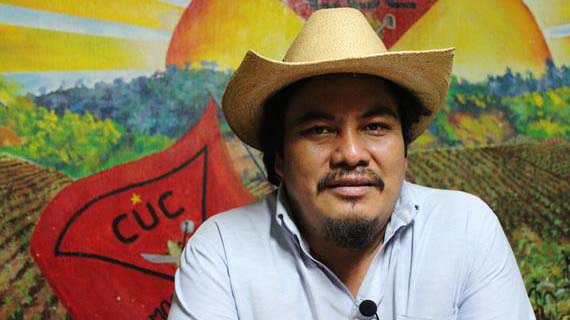The critical situation of human rights defenders in Guatemala has been highlighted by a number of international bodies. A 2016 report of the Inter-American Commission on Human Rights (IACHR) raised the issue, highlighting defenders’ exposure to harassment, attacks, and often murder. A 2015 IACHR report noted 380 cases of aggression against defenders in Guatemala and that criminal charges against defenders are becoming more frequent. Furthermore, also the UN Committee on the Elimination of Racial Discrimination has expressed grave concern for attacks against defenders.
The case, Daniel Pascual
In this context, in early 2016, Daniel Pascual, an indigenous human rights defender, was charged with defamation and calumny under the Ley Constitucional de Emisión del Pensamiento (Constitutional Law for the Expression of Thought) for speaking out on human rights violations. Pascual is the General Coordinator of the Comité de Unidad Campesina (CUC), a civil society organisation working on the protection of land rights, rural development, gender equity, and oppression.
In filing the intervention in the case Pascual in Guatemala’s Constitutional Court, ISHR sought to demonstrate the State’s obligation to protect human rights defenders, which is well enshrined in existing international instruments – the American Convention on Human Rights, the International Covenant on Civil and Political Rights (CCPR), and the UN Declaration on Human Rights Defenders.
Guatemala’s legal framework
The Guatemalan Constitution guarantees rights that are ‘inherent to the human person’[1], and provides that international instruments ratified by Guatemala are incorporated into domestic law[2].
‘Guatemala’s Constitution and domestic legislation reflect a commitment to comply with relevant international instruments, and more specifically to this case – the UN Declaration on Human Rights Defenders. In doing so, the Government has accepted an obligation to protect defenders and ensure the right to freedom of expression is protected,’ said ISHR’s Legal Counsel Tess McEvoy.
Not only is the right to disseminate and access information protected in the Constitution and the Declaration; the Constitution also states that freedom of expression or thought ‘may not be restrained by [the] law or by any governmental provision.’
ISHR calls upon the Guatemalan authorities
‘Pascual has been charged for speaking out about human rights violations. In charging Pascual, the Government has effectively criminalised his legitimate activities as a human rights defender,’ stated McEvoy.
ISHR strongly urges the Government of Guatemala to consider this case, and more specifically the motivation behind the criminal procedure against Pascual, within the context of criminalisation against defenders in Guatemala. The UN Declaration on Human Rights Defenders, and Guatemala’s obligations to it, have to be uphold in this case and any other case regarding human rights defenders.
A copy of the intervention can be accessed here.
Contact: Tess McEvoy, [email protected]
Photo of Daniel Pascual by Carta Maior




